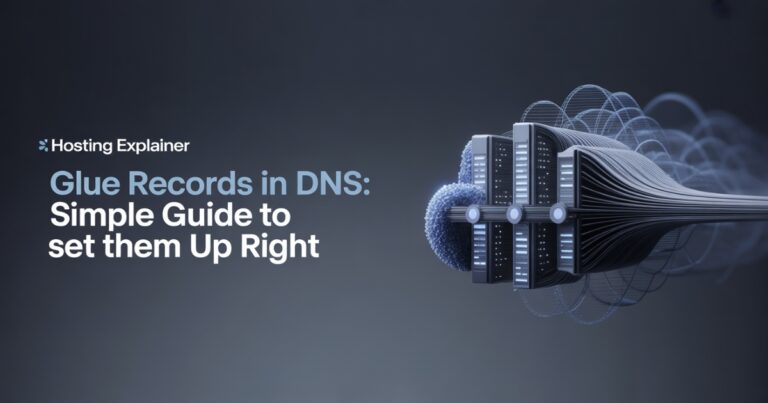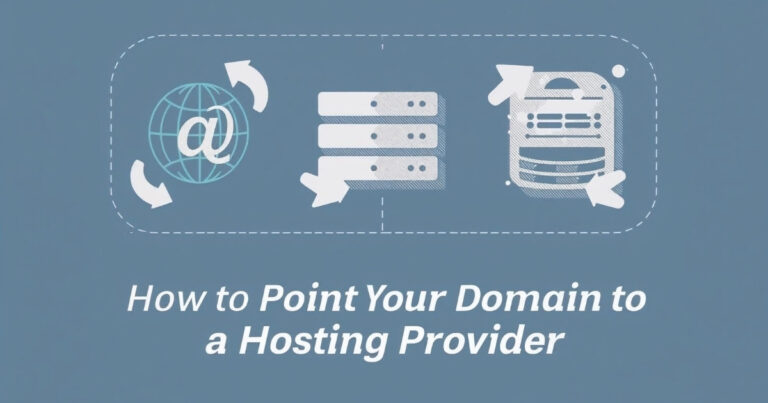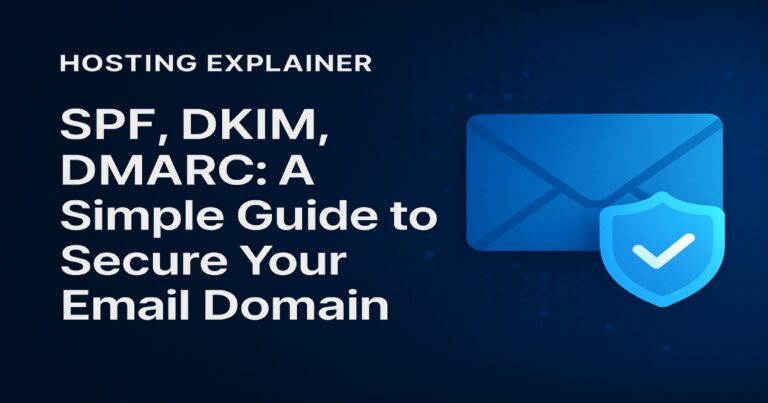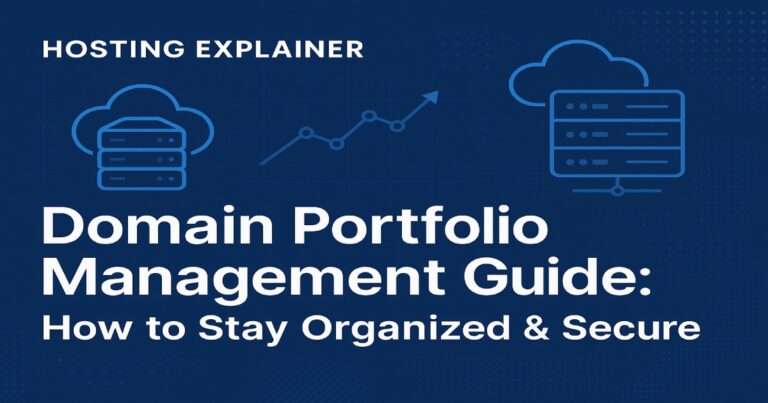SSL Certificates Explained: Why Your Website Needs One
Have you ever clicked on a website and seen the warning “Not Secure” in your browser? I remember the first time it happened to me. My instinct was to leave right away. That moment showed me how much trust matters online.
An SSL certificate is the small but powerful tool that prevents this from happening. It tells visitors your site is safe, private, and trustworthy.
In this article, I’ll explain what an SSL certificate is, why your website needs one, the different types, and how to get started.
What is an SSL certificate?
An SSL certificate is like a digital passport for your website. It creates a secure link between your visitor’s browser and your server. This link makes sure data stays private.
SSL stands for Secure Sockets Layer. Today, most websites use TLS (Transport Layer Security), which is an improved version.
But people still say SSL. When your site has SSL, it shows as HTTPS instead of HTTP, and you’ll see a padlock icon in the browser.
In simple terms, an SSL certificate proves your website is real and protects the data shared on it.

Why Your Website Needs an SSL Certificate
Now that you know what it is, let’s see why it’s so important.
Protecting Customer Data
The main job of SSL is encryption. It scrambles sensitive details like passwords, emails, or payment info so hackers can’t read them. Without SSL, data moves in plain text, which is easy to steal.
If you run an online shop, a blog with logins, or even a small portfolio, SSL keeps your visitors safe. Even a single stolen password can cause damage, and that’s a risk not worth taking.
Building Trust and Credibility
Think about how you feel when you see the padlock icon. You trust that site more, right? Visitors feel the same about yours.
When a site shows “Not Secure,” people click away. SSL builds instant credibility and makes visitors more likely to stay, read, and buy. For businesses, this trust translates into more sales and stronger customer loyalty.
Boosting SEO and Rankings
Google has confirmed that HTTPS is a ranking factor. That means having an SSL certificate can help your site show higher in search results.
I noticed this myself. After I added SSL to one of my blogs, my rankings improved over time. It wasn’t a magic jump, but it gave me an edge over sites without it. When two websites compete for the same keyword, HTTPS can be the tie-breaker.
Meeting Browser and Compliance Requirements
Most browsers, like Chrome and Safari, now flag sites without HTTPS. Some even block access or show warnings.
For businesses, SSL also helps with compliance. Privacy laws, eCommerce standards, and even payment processors expect you to use SSL. Without it, you may not be able to accept credit card payments or meet data protection rules.
Types of SSL Certificates Explained
Not all SSL certificates are the same. Here are the main types you’ll see:
- DV (Domain Validation): Fast and free. Good for blogs or personal sites.
- OV (Organization Validation): Verifies your business identity. Better for companies or organizations.
- EV (Extended Validation): The highest trust level. Shows your business name in the browser bar. Often used by banks and large eCommerce sites.
- Wildcard SSL: Covers your main domain and all subdomains. Great if you run multiple sections like shop.example.com and blog.example.com.
- Multi-domain SSL: Secures several different domains with one certificate. Useful if you manage multiple brands.
SSL Certificate Use Cases in Real Life:
- A hobby blogger can stick with free DV SSL.
- A local shop selling online may want OV to show legitimacy.
- A financial service should invest in EV to build maximum trust.
How to Get and Install an SSL Certificate
Adding SSL to your website is easier than it sounds.
Free SSL Certificate Options
Services like Let’s Encrypt or Cloudflare offer free SSL. Many hosting companies also include SSL in their plans. If you use WordPress, you can set up SSL with a plugin in a few clicks.
Paid SSL Certificates for Businesses
If you run an online store or need higher trust, paid SSL is a smart choice. They come with extra validation, warranty, and support. Providers like DigiCert, Sectigo, or GlobalSign are well known.
Here’s a quick comparison:
| Feature | Free SSL (DV) | Paid SSL (OV/EV) |
| Cost | Free | $50–$300+ per year |
| Validation Level | Domain only | Business / Extended |
| Warranty | None | Included (varies) |
| Trust Signal | Padlock only | Padlock + business name |
| Best For | Blogs, small sites | eCommerce, enterprises |
Step-by-Step SSL Certificate Installation Basics
The process varies by host, but here’s the basic flow:
- Buy or request your SSL certificate.
- Generate a CSR (Certificate Signing Request) in your hosting panel.
- Install the SSL certificate through your host’s dashboard.
- Update your site to force HTTPS in all links.
- Test it using tools like SSL Labs to confirm it works.
Even if this sounds technical, most hosting providers will set it up for you in minutes.
SSL Certificate Myths and Misconceptions
A lot of myths make SSL seem confusing. Let’s clear them up:
- SSL certificates are expensive:Not true. Free options like Let’s Encrypt work well for most sites.
- SSL stops hacking: SSL doesn’t protect your site from being hacked. It only secures data in transit. You still need firewalls, updates, and backups.
- Small websites don’t need SSL: Every site needs SSL. Even simple blogs use login forms and collect visitor data.
- SSL slows down websites: Modern SSL has almost no effect on speed. In fact, with HTTP/2, sites often load faster.
Real-Life Example: What Happened When I Added SSL
When I first added SSL to one of my websites, I noticed two big changes. My bounce rate dropped, and people stayed longer. The small padlock gave them confidence.
Later, I also saw steady growth in search traffic. Google seemed to favor my secure site over competitors still on HTTP.
That real-world shift showed me SSL is more than just a technical detail. It’s a trust signal that affects both user behavior and search visibility.
FAQs About SSL Certificates
1. What does an SSL certificate do?
It encrypts data and proves your site is authentic.
2. How long does an SSL certificate last?
Most last 12–24 months. Free SSL often renews every 90 days.
3. Can I get an SSL certificate for free?
Yes, with services like Let’s Encrypt or hosting providers.
4. Is an SSL certificate mandatory for all websites?
Yes, if you care about security, trust, or SEO. Browsers now expect HTTPS.
5. Does SSL improve SEO ranking?
Yes. HTTPS is a confirmed ranking factor in Google.
6. What’s the difference between SSL and TLS?
TLS is the newer, more secure version of SSL. People often use SSL as the common term.
SSL: A Simple Step Toward Trust and Security
To sum it up, an SSL certificate is no longer optional. It protects customer data, builds trust, improves SEO, and meets browser standards. Without SSL, you risk losing visitors, sales, and search visibility.
If your site doesn’t have one yet, start today. A free SSL is enough for beginners and small sites, but if you run a business, consider investing in a paid certificate for extra trust and protection.
In the end, SSL isn’t just about security. It’s about credibility, user experience, and future-proofing your online presence. Adding it is one of the simplest and smartest steps you can take for your website.






